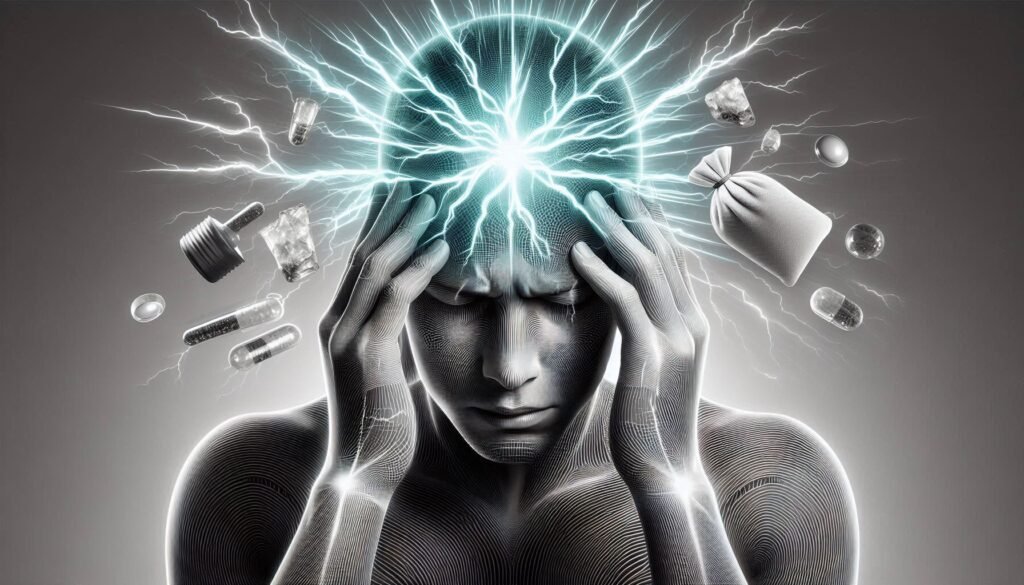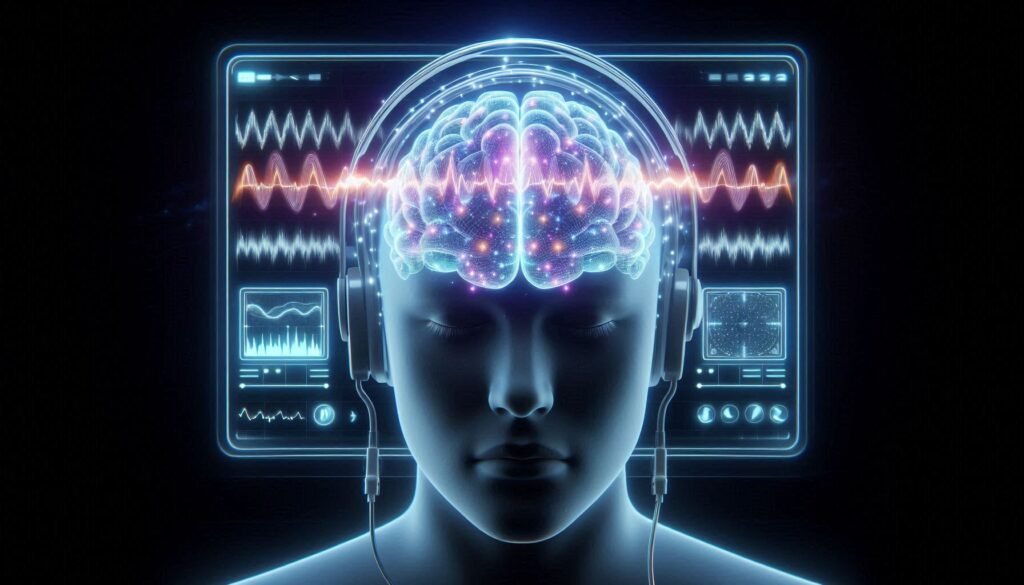Concussions have become an increasingly recognized concern, especially among athletes and active individuals. These brain injuries can lead to a myriad of symptoms that significantly impact daily life. While rest and rehabilitation are often the first lines of defense, pharmacological interventions for concussion symptoms offer another layer of support in recovery.
With a variety of medications available, understanding their role is essential for both patients and healthcare providers. From managing pain to addressing mood disorders, these drugs can provide relief but also carry risks. Navigating this complex landscape requires careful consideration of the benefits versus potential side effects.
Join us as we explore the various pharmacological options available for concussion management and how they might fit into your recovery plan. Discovering the right approach could be key to regaining control over your health after a concussion.

Understanding the Role of Medication in Concussion Management
Medication plays a vital role in managing concussion symptoms when traditional methods fall short. While rest is paramount, many patients experience persistent headaches, mood changes, and cognitive issues that can hinder recovery. In such cases, pharmacological interventions become an essential part of the treatment plan.
Different classes of medications target specific symptoms. Analgesics help relieve pain from headaches while antidepressants address mood disturbances related to concussion. Each medication has its purpose and must be tailored to individual needs for effectiveness.
It’s important to note that not all individuals will require medication; some may benefit more from non-pharmacological approaches like therapy and lifestyle modifications. However, for those who do need pharmacological support, understanding their options ensures informed decision-making.
Healthcare professionals play a crucial role in guiding this process. By evaluating each patient’s unique circumstances and potential risks associated with medications, they can create personalized plans aimed at optimizing recovery outcomes without compromising safety.
Analgesics for Headache and Pain Management Post-Concussion
Headaches are a common symptom following a concussion. They can vary in intensity and frequency, often disrupting daily activities. Analgesics play a crucial role in managing this pain effectively.
Over-the-counter options like acetaminophen are frequently recommended as first-line treatments. Acetaminophen is generally well-tolerated and has fewer side effects compared to other medications, making it suitable for those recovering from concussions. However, it’s essential to follow dosage guidelines closely.
Nonsteroidal anti-inflammatory drugs (NSAIDs), such as ibuprofen or naproxen, may also be utilized. These medications not only relieve pain but also reduce inflammation, which could contribute to headache symptoms. Caution is advised since NSAIDs can increase the risk of gastrointestinal issues if used excessively.
Consulting with a healthcare professional is vital before starting any medication regimen post-concussion. Individual responses vary greatly, and personalized treatment plans will enhance recovery while minimizing potential complications associated with analgesic use.
Antidepressants: Addressing Mood Disorders in Concussion Recovery
Concussions can have a profound impact on mental health, often leading to mood disorders such as depression and anxiety. These conditions may arise from the injury itself or as a response to the physical limitations that follow. Antidepressants can play a crucial role in addressing these issues during recovery.
Selective serotonin reuptake inhibitors (SSRIs) are commonly prescribed for mood regulation after a concussion. They work by increasing serotonin levels in the brain, which can help improve mood and general well-being. However, it’s essential for healthcare providers to evaluate each patient’s unique situation before prescribing medication.
While antidepressants may offer significant benefits, they also come with potential side effects. Patients should be monitored closely for any adverse reactions or changes in symptoms during treatment. This ongoing assessment ensures that the chosen approach is effective and safe.
Psychotherapy is often recommended alongside pharmacological interventions like antidepressants. Combining both strategies provides comprehensive support aimed at improving mental health outcomes throughout concussion recovery.
Anti-Epileptic Drugs for Post-Traumatic Seizure Prevention
After a concussion, some individuals may experience post-traumatic seizures, which can significantly impact recovery. Anti-epileptic drugs (AEDs) are sometimes prescribed to prevent these seizures from occurring. These medications work by stabilizing electrical activity in the brain, reducing the likelihood of seizure onset.
Commonly used AEDs include phenytoin and levetiracetam. The choice of medication depends on various factors, such as individual health profiles and specific concussion severity. It is essential for healthcare providers to assess patients thoroughly before initiating treatment with AEDs.
While these medications can be effective in preventing seizures, they come with potential side effects. Patients may experience fatigue, dizziness, or changes in mood. Regular monitoring is crucial to manage any adverse reactions effectively.
The timing of AED administration also plays a role in their effectiveness. Some studies suggest that starting treatment shortly after injury might improve outcomes while minimizing the risk of long-term complications associated with post-traumatic epilepsy.
Sleep Aids: Balancing Rest and Medication in Concussion Treatment
Sleep disturbances are common after a concussion, making effective rest crucial for recovery. Patients often experience insomnia or disrupted sleep patterns due to headaches, anxiety, or other symptoms. This can hinder the healing process and exacerbate cognitive issues.
Sleep aids can be beneficial in managing these problems. Medications like melatonin or certain prescription sedatives may help restore normal sleep cycles. However, they should be used cautiously and typically as a short-term solution.
The challenge lies in finding the right balance between medication use and natural sleep promotion strategies. Incorporating good sleep hygiene practices—such as maintaining a consistent bedtime routine and creating a restful environment—can enhance overall recovery.
It’s essential that healthcare providers assess each individual’s unique situation before recommending pharmacological options for sleep management post-concussion. Collaboration between patients and their medical team ensures that any intervention aligns with broader treatment goals while minimizing risks associated with medications.
Stimulants for Attention and Cognitive Issues: Weighing the Options
Stimulants are sometimes considered for managing attention and cognitive difficulties that arise after a concussion. These medications can enhance focus, reduce fatigue, and improve overall cognitive performance in some individuals. However, the decision to use stimulants should be approached with caution.
One common stimulant is methylphenidate, often prescribed for ADHD but explored in post-concussion settings as well. While it may help mitigate cognitive challenges, it’s crucial to evaluate potential side effects such as anxiety or insomnia.
Another option includes amphetamines like dextroamphetamine. They can offer similar benefits but come with their own set of risks. Patients must undergo thorough assessments before starting these medications.
It’s essential to weigh the potential benefits against possible drawbacks carefully. Collaborating closely with healthcare providers ensures tailored approaches that prioritize safety while addressing symptoms effectively.
Anti-Vertigo Medications for Vestibular Symptoms Post-Concussion
Post-concussion syndrome often includes vestibular symptoms such as dizziness and balance issues. These can significantly impact daily life, making activities challenging or even impossible. Anti-vertigo medications are commonly prescribed to help manage these sensations.
Medications like meclizine and dimenhydrinate target the inner ear’s involvement in vertigo. They work by decreasing the signals sent to the brain that trigger feelings of spinning or imbalance. This action helps alleviate nausea and improves overall stability.
In some cases, benzodiazepines may be prescribed for their calming effects on the nervous system. While they can provide relief from severe symptoms, caution is required due to potential dependency with long-term use.
It’s crucial for patients to discuss their specific symptoms with healthcare providers before starting any medication regimen. Personalized treatment plans ensure a balanced approach between managing vertigo and avoiding unwanted side effects during recovery.
Neuroprotective Agents: Current Research and Potential Applications
Neuroprotective agents are gaining attention in concussion research for their potential to safeguard the brain during recovery. These compounds aim to mitigate secondary injury processes that can occur after the initial impact. By targeting inflammation and oxidative stress, they may help preserve neuronal function.
One area of focus is drugs that modulate neuroinflammation. Research suggests that reducing inflammatory responses could limit damage to surrounding neurons, fostering a more favorable healing environment. Additionally, antioxidants are being explored for their ability to counteract oxidative stress caused by traumatic brain injuries.
Another interesting avenue involves compounds like magnesium and certain vitamins. They have shown promise in animal models by enhancing cellular repair mechanisms following concussions. This line of inquiry opens new possibilities for preventive strategies in individuals at risk of recurrent head injuries.
Current clinical trials are essential for determining the efficacy of these neuroprotective agents in humans. As studies progress, we may see advancements leading to targeted therapies tailored specifically for concussion management.
Risks and Side Effects of Pharmacological Interventions
Pharmacological interventions for concussion symptoms can offer significant relief, but they are not without risks. Each medication carries potential side effects that vary in severity and frequency among individuals. Understanding these risks is crucial for effective management.
Common concerns include drowsiness, dizziness, or gastrointestinal issues associated with analgesics and sleep aids. These side effects may interfere with daily activities or hinder recovery efforts. Antidepressants, while beneficial for mood stabilization, can introduce additional challenges such as weight gain or emotional blunting.
Moreover, anti-epileptic drugs pose their own unique set of risks. Patients might experience fatigue or cognitive impairment that complicates the healing process further. Monitoring by healthcare professionals is essential to ensure any adverse reactions are addressed promptly.
Combining multiple medications increases the likelihood of interactions and compounded side effects. This complexity necessitates a careful assessment of benefits versus risks before starting any pharmacological intervention for concussion symptoms.
Integrating Medication with Non-Pharmacological Treatment Approaches
Integrating pharmacological interventions with non-pharmacological treatment approaches can create a comprehensive recovery plan for individuals dealing with concussion symptoms. This holistic approach acknowledges that while medications can alleviate certain symptoms, lifestyle changes and therapeutic strategies also play a critical role in recovery.
Non-pharmacological treatments such as physical therapy, cognitive rehabilitation, and psychotherapy offer valuable support. They help address the underlying issues associated with concussions—like balance problems or emotional distress—without relying solely on medication. Additionally, implementing healthy practices like good sleep hygiene and regular exercise can enhance overall well-being.
Collaboration between healthcare professionals is essential when combining these approaches. Physicians should work closely with therapists to tailor treatment plans based on individual needs. Open communication allows adjustments as progress is made.
As we continue to learn more about concussion management, finding an effective balance between pharmacological interventions and holistic methods will empower patients on their journey to recovery while minimizing potential risks associated with medications.


